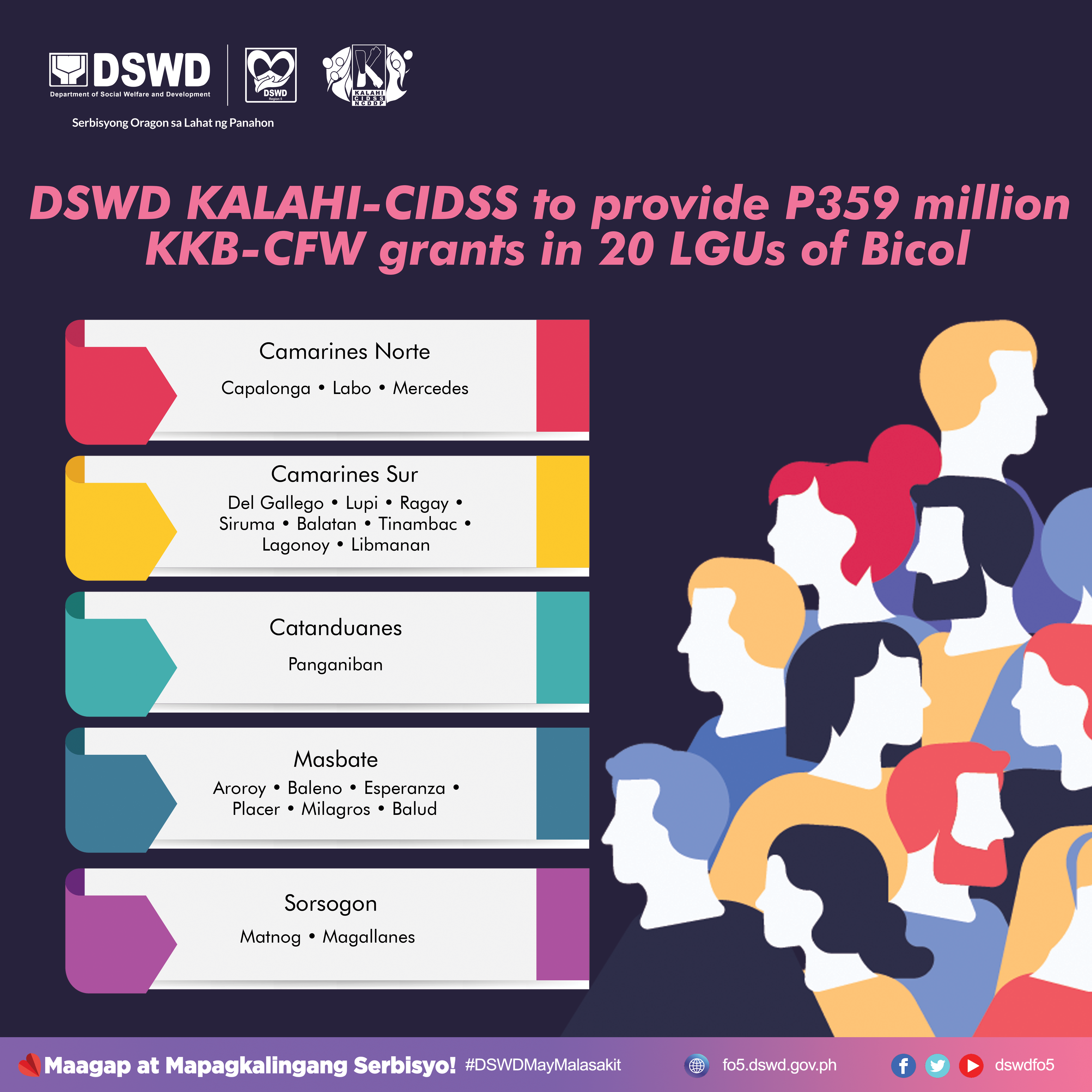
The Department of Social Welfare and Development Kapit-Bisig Laban sa Kahirapan – Comprehensive and Integrated Delivery of Social Services (DSWD KALAHI-CIDSS) will be providing PhP 359,421,100.00 community
grants under Kapangyarihan at Kaunlaran sa Barangay – Cash for Work (KKB-CFW) modality in 20 municipalities in the Bicol Region.
The selected Local Government Units (LGUs) are Capalonga, Labo, and Mercedes in Camarines Norte; Del Gallego, Lupi, Ragay, Siruma, Balatan, Tinambac, Lagonoy, and Libmanan in Camarines Sur; Panganiban in
Catanduanes; Aroroy, Baleno, Esperanza, Placer, Milagros, and Balud in Masbate; Matnog and Magallanes in Sorsogon.
Ms. Adelaida Escurel, Deputy Regional Program Manager of KALAHI-CIDSS Regional Program Management Office (RPMO), said that the LGUs were identified by ranking the municipalities with at least 21% poverty index as
listed in the 2015 Municipal Poverty Estimates of the Philippine Statistics Authority (PSA).
Each municipality will be receiving community grants amounting to PhP 6 million to PhP 20 million. The grant allocation was computed according to the number of barangays, 2015 Municipal Poverty Incidence, Municipal Class, and 2015 Population Census.
“Under the KKB-CFW modality, communities may propose sub-projects under CFW mechanism like cleaning, disinfection, and sanitizing of common public facilities, assistance in contract tracing, repair or upgrading of isolation facilities, repair or upgrading of health stations, and other activities related to COVID-19 response and management,” she explained.
Ms. Escurel added that the modality will be implemented until December 2022.
Cash-for-Work is a scheme that provides cash aid to sectors that are affected by disaster and COVID-19 pandemic in exchange of their community work. It aims to provide temporary employment to no income or low-income families, homeless or street families, returning Overseas Filipino Workers, Indigenous peoples, pregnant women, elder persons, Person(s) with Disabilities, families in conflict-affected communities, and indigent individuals or families in difficult circumstances.
